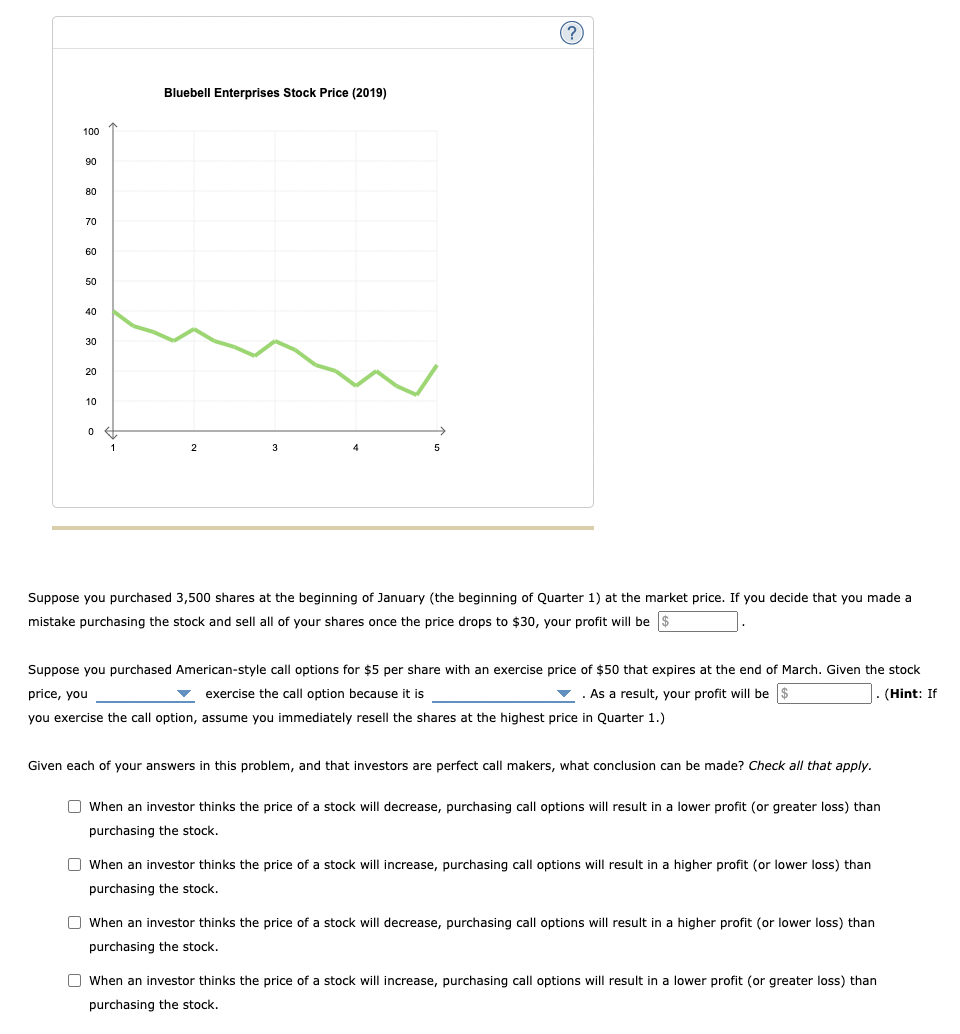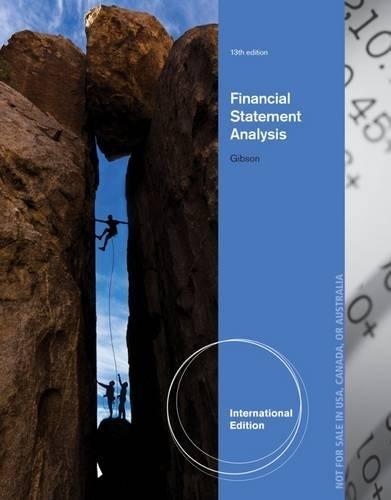Answered step by step
Verified Expert Solution
Question
1 Approved Answer
Note: The options for the first drop-down blank are: should/should not. The options for the second drop-down blank are: at the money/in the money/out of

Note: The options for the first drop-down blank are: should/should not. The options for the second drop-down blank are: at the money/in the money/out of the money.
Suppose you purchased 3,500 shares at the beginning of January (the beginning of Quarter 1) at the market price. If you decide that you made a mistake purchasing the stock and sell all of your shares once the price drops to $30, your profit will be Suppose you purchased American-style call options for $5 per share with an exercise price of $50 that expires at the end of March. Given the stock price, you exercise the call option because it is you exercise the call option, assume you immediately resell the shares at the highest price in Quarter 1.) Given each of your answers in this problem, and that investors are perfect call makers, what conclusion can be made? Check all that apply. When an investor thinks the price of a stock will decrease, purchasing call options will result in a lower profit (or greater loss) than purchasing the stock. When an investor thinks the price of a stock will increase, purchasing call options will result in a higher profit (or lower loss) than purchasing the stock. When an investor thinks the price of a stock will decrease, purchasing call options will result in a higher profit (or lower loss) than purchasing the stock. When an investor thinks the price of a stock will increase, purchasing call options will result in a lower profit (or greater loss) than purchasing the stock. Suppose you purchased 3,500 shares at the beginning of January (the beginning of Quarter 1) at the market price. If you decide that you made a mistake purchasing the stock and sell all of your shares once the price drops to $30, your profit will be Suppose you purchased American-style call options for $5 per share with an exercise price of $50 that expires at the end of March. Given the stock price, you exercise the call option because it is you exercise the call option, assume you immediately resell the shares at the highest price in Quarter 1.) Given each of your answers in this problem, and that investors are perfect call makers, what conclusion can be made? Check all that apply. When an investor thinks the price of a stock will decrease, purchasing call options will result in a lower profit (or greater loss) than purchasing the stock. When an investor thinks the price of a stock will increase, purchasing call options will result in a higher profit (or lower loss) than purchasing the stock. When an investor thinks the price of a stock will decrease, purchasing call options will result in a higher profit (or lower loss) than purchasing the stock. When an investor thinks the price of a stock will increase, purchasing call options will result in a lower profit (or greater loss) than purchasing the stockStep by Step Solution
There are 3 Steps involved in it
Step: 1

Get Instant Access to Expert-Tailored Solutions
See step-by-step solutions with expert insights and AI powered tools for academic success
Step: 2

Step: 3

Ace Your Homework with AI
Get the answers you need in no time with our AI-driven, step-by-step assistance
Get Started


